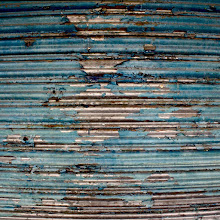Unsurprisingly, I have been watching, like everyone else, the slope the American economy has been sliding down the last year or so. I am disheartened and worried and cynical and terrified about what the future holds for this country; I fret about my money as well as my future on a regular basis, even though I am relatively gainfully employed. I have seen and benefited greatly from, in my brief 24 years on this planet, a hugely prosperous upswing in the economy and watched, wide-eyed and stupid, as the foundation of the American way of life in late 20th and early 21st century fell out from underneath everyone. It is obvious to cite the 65 banks that have closed since 2008, note the bankruptcy and failures of GM and Chrysler as well as Ford's shortcomings, the deflation of the housing market and the joblessness that is reported back to me everyday.
It's all beating a dead horse, really. I can't say anything about the economic situation of the last 2 years that hasn't already been articulated and explored better than I can.
What I see in times of seemingly endless struggle, however, is re-examining the way Americans have been living the last 50 years. We have been ever-expanding outward; bigger, better, faster, newer without considering the consequences of the precious land and the vast, gorgeous history that has been sacrificed for our culture of empty, mindless buying and the inherently American need to own a piece of that land for ourselves.
I see the shift when I work out at the Rodale Institute, watching the expanding interest in organic, sustainable and local food. I hear about it when wind and solar energy is slowly starting to be the new go-to for powering our country, as opposed to fossil fuels.
So, when I read about Flint, Michigan's plans to shrink itself in order to save it, I was amazed. It sounds so counter-intuitive to what Americans think of as a means of prosperity and yet, by making a town (especially that has struggled so notoriously as Flint has) smaller makes so much sense. By bringing the town back to a center and making it more concentrated around that center, it becomes more sustainable, accessible and and economically viable. While I am not saying that decision to give up the house that one has worked so hard to make home is an easy one, to let go of the idea that "This is mine and it will always be mine" for the larger good of a failing community seems like a strange and refreshingly good idea.
Big Box Reuse is a photography project by Julia Christensen about the ways in which people and organizations have taken closed Big Box stores and re-imagined them into places of worship, art, community, health and learning. It is well known that the construction and openings of such places as Wal-mart and Home Depot kills local economies and businesses and to see the space that such places of huge consumerism once occupied reused and remade into a places of purpose is refreshing and inspiring.
7.19.2009
Meltdown/Rebuild.
at
11:25 AM
![]()
labels: american mythology, ideas, links

